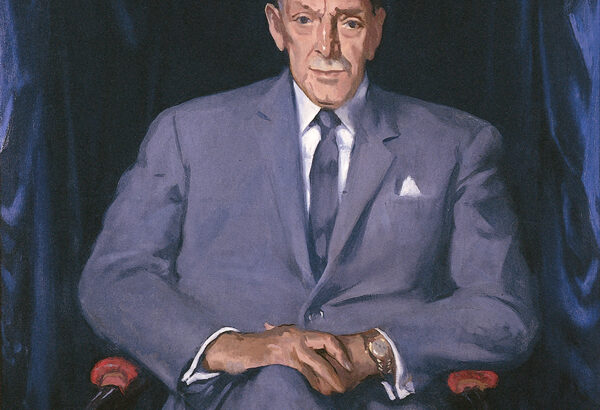Tim Pat Coogan, my former boss as editor of the Irish Press, singles out in his book Ireland in the Twentieth Century, Sean Lemass and TK Whitaker as “hinge” figures between the “old” and the “new” Irelands that emerged in the early 1960s.
Lemass, one of the original architects of the Fianna Fáil policy of protectionism, had the insight to see that it wasn’t working, and the courage to do something about it.
Whitaker in the Department of Finance supplied the means (a blueprint) by which the then Taoiseach could embark on a new departure. They were key shapers of the Ireland we live in today.
Lemass, who died in May 1971 at the age of 71, features only indirectly in this excellent collection of interview-profiles, having been chosen by Tony O’Reilly as one of his “heroes”.
O’Reilly’s contribution here comes from a 1987 radio series ‘Heroes and Heroines’, in which a guest spoke about three people they greatly admired (O’Reilly’s other choices were Winston Churchill and Stephen Roche).
The former owner of Independent Newspapers was unstinting in his praise of Lemass: “If de Valera looked after what he considered to be the spiritual soul of his country, it was Lemass who knew that, essentially, bread had to be put on the table and he did it in a creative, open-minded, pragmatic way”.
John Quinn, a former RTÉ broadcaster, pays homage to 50 people from various fields – the arts, education, politics, business, science and economics – so his book contains a rich mixture of material to savour and learn from.
Of the 50 personalities featured readers will have their own favourites. I was fortunate to meet some of them – two of which meetings were chance encounters on a train; Edna O’Brien on the Cork-Dublin express (she boarded at Limerick Junction with her son, Carlo Gebler), and the other with Seamus Heaney on the Dublin to Belfast train (I was getting off in Drogheda, he was going on to Dundalk to talk about a teaching job, and I still regret the fact that I never made notes afterwards).
I would meet Edna for a second time when she attended a dinner (arranged by her publisher) in Cork with a group of journalists who had covered the Kerry Babies Tribunal in 1984. We spent an entertaining evening with a charming woman whose beauty back then was still undimmed by time.
I particularly enjoyed the interview with Denis Donoghue, one of the world’s foremost scholars of modern literature, who from an early age developed the habit of writing down words that struck him as interesting.
“No one told me what the difference was between good writing and bad writing. I kept lists and would write down words that I came across in my reading which were unfamiliar to me.”
It was a habit I developed myself, though my self-learning was put to poor use alongside the achievements of Prof. Donoghue. Still, I found a certain reassurance in his admission that, prior to going to university; he was “largely self-taught”.
What is surprising, or I should say disappointing, about the selection of 50 ‘memorable minds’ chosen by John Quinn is the absence from it of any senior Church figure, whether bishop or prominent theologian – this surprising given the central role played by the Catholic Church in 20th century Ireland. That is a thought worth pondering.



